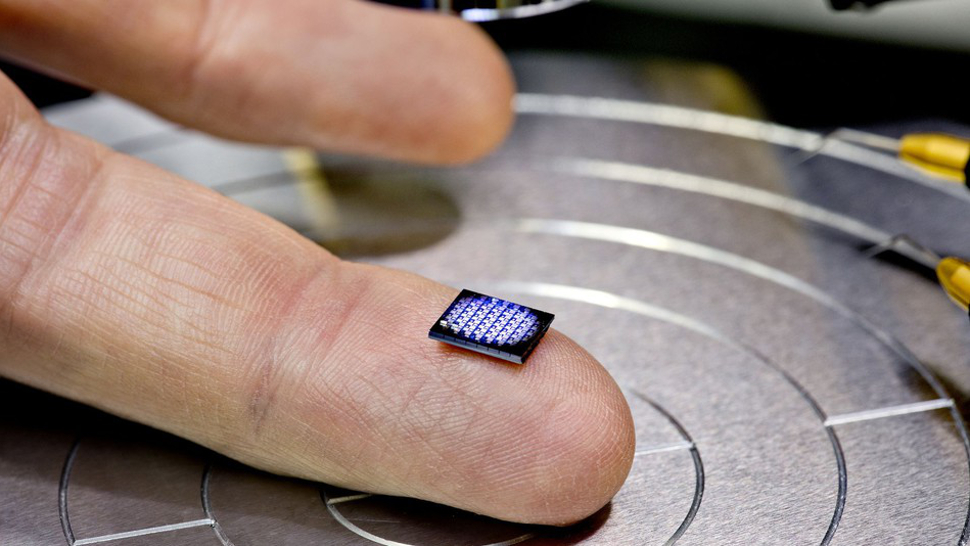IBM has made a computer that’s smaller than a grain of salt
Chip is so tiny you’ll need a microscope to see it

Sign up for breaking news, reviews, opinion, top tech deals, and more.
You are now subscribed
Your newsletter sign-up was successful
IBM has made a computer which is smaller than a grain of salt, and the miniature marvel will be unveiled later today at the firm’s Think 2018 conference.
The tiny computer bristles with several hundred thousand transistors and measures approximately 1mm squared, and has the computing power of an x86 chip from back in 1990, as Mashable reports (the above image from IBM shows two of the compact computers nestling in the top-left of the board).
It’ll cost less than 10 cents to produce these grain-sized computers but, obviously enough, they aren’t something you’ll be running Microsoft Word on. The tiny devices are part of IBM’s vision for future technology – they will be ‘cryptographic anchors’ embedded in everyday objects, used to ensure the object’s authenticity in combination with blockchain tech.
In other words, this is an anti-fraud measure. At any point in the supply chain, counterfeit goods can potentially be introduced, but if the real devices have these tiny chips in them, they can be physically verified as the genuine article.
Joining the dots
They could be applied to expensive gadgets so you can be sure you’re buying the real thing and not a knock-off, or these tiny computers could even be embedded in things like malaria pills as (edible) ink dots, again to ensure that patients are getting the genuine drug and not a fake.
IBM is testing the initial prototype at the moment, and it’s not clear when these ‘dot’ computers will make the transition from the research labs to the market, although the company says it will be ‘soon’.
The firm observed: “These technologies pave the way for new solutions that tackle food safety, authenticity of manufactured components, genetically modified products, identification of counterfeit objects and provenance of luxury goods.”
Sign up for breaking news, reviews, opinion, top tech deals, and more.
As mentioned, all this will happen in combination with blockchain technology, which we discussed further in this feature: Bitcoin vs distributed ledger vs Ethereum vs blockchain.
Top image credit: IBM
- We’ve highlighted the best laptops of 2018
Darren is a freelancer writing news and features for TechRadar (and occasionally T3) across a broad range of computing topics including CPUs, GPUs, various other hardware, VPNs, antivirus and more. He has written about tech for the best part of three decades, and writes books in his spare time (his debut novel - 'I Know What You Did Last Supper' - was published by Hachette UK in 2013).